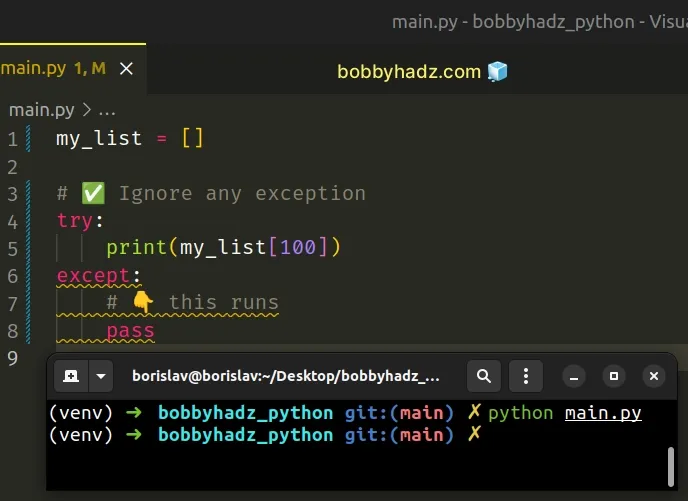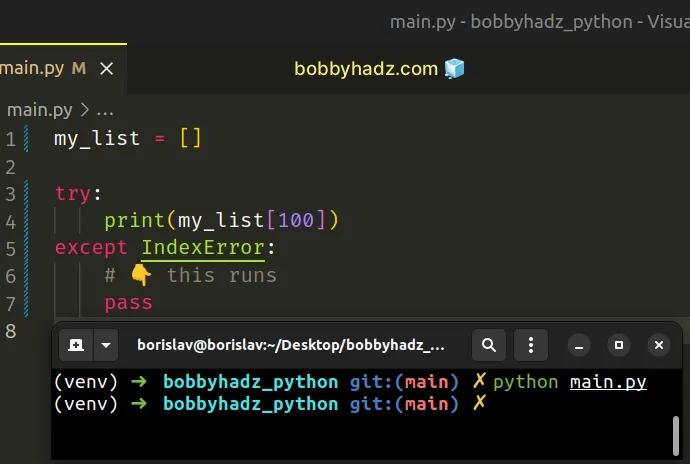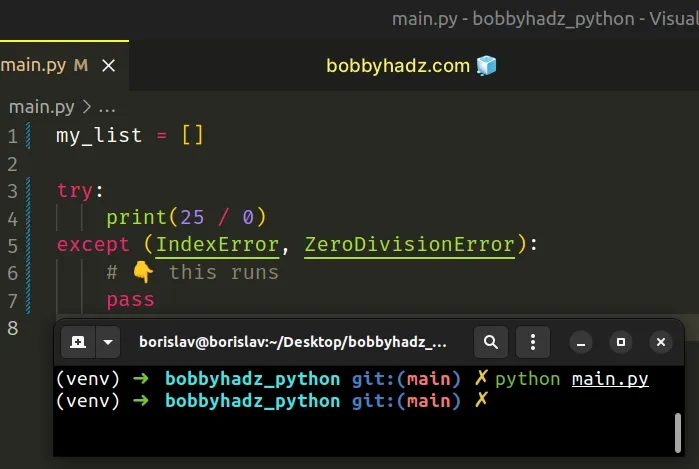Using try without except (ignoring exceptions) in Python
Last updated: Apr 9, 2024
Reading time·2 min

# Using try without except (ignoring exceptions) in Python
Use the pass statement to use a try block without except. The pass
statement does nothing and is used when a statement is required syntactically
but the program requires no action.
my_list = [] # ✅ Ignore any exception try: print(my_list[100]) except: # 👇️ this runs pass

We used a pass statement to ignore an exception.
except statement in the first example handles an exception of any type.The code in the try block could raise any exception and it would get passed to
the except block.
my_list = [] # ✅ Ignore any exception try: # 👇️ raises ValueError my_list.remove(1000) except: # 👇️ this runs pass
The pass statement does nothing and is used when a statement is required syntactically but the program requires no action.
In general, using an except statement without explicitly specifying the
exception type is considered a bad practice.
# Ignoring only specific errors
An alternative approach is to scope the except block to a specific error.
my_list = [] try: print(my_list[100]) except IndexError: # 👇️ this runs pass

The except block only handles IndexError exceptions.
If an exception of any other type is raised, the except block won't handle it.
For example, the following code raises a ZeroDivisionError in the try block
and crashes the program.
# ⛔️ ZeroDivisionError: division by zero try: print(25 / 0) except IndexError: pass
# Ignoring multiple, specific errors
You can also specify multiple exception classes in an except block.
my_list = [] try: print(25 / 0) except (IndexError, ZeroDivisionError): # 👇️ this runs pass

except block runs because it handles the ZeroDivisionError that gets raised in the try block.If you have to specify multiple exception classes, make sure to wrap them in parentheses.
You can view all of the exception classes in Python in the Exception hierarchy list in the docs.

